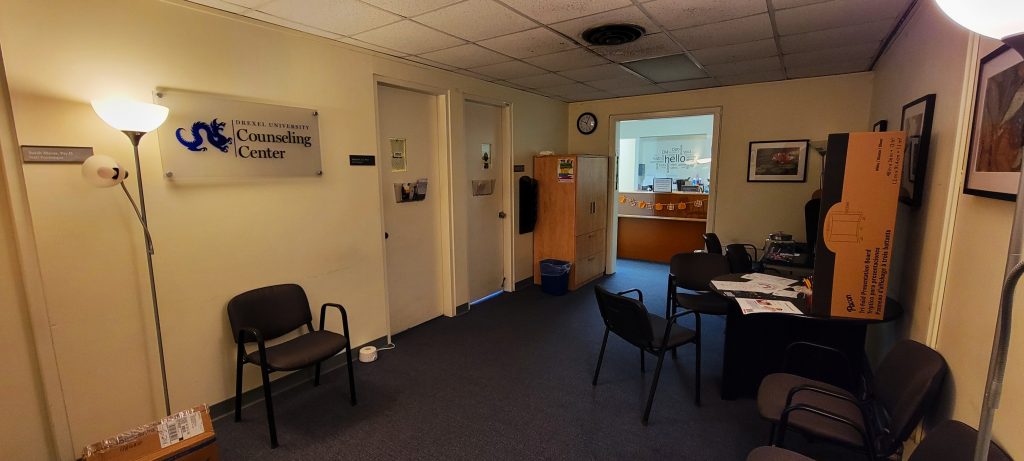
It is said that in the sacred halls of college education, where stress and existential concerns loom larger than the college library, there is a doorway leading to the wise advice land known as “Counseling Services.” Students are assured peace of mind in this haven for mental wellness, yet underlying its tranquil veneer is a lesson in resourceful problem avoidance.
Imagine this: you are a distressed student who has decided to visit the counselor in the hopes of regaining your composure. The counselor, a master of ambiguity, listens to your problems with studied disinterest, nodding wisely as you talk. They ask, “Have you considered the therapeutic wonders of coloring books?” As if finding the answer to your scholastic-life imbalance problem lies inside the lines of a child’s artwork (or a LeBow major’s homework).
There are also leaflets, which are like little saviors made of glossy paper and provide wisdom such as “Breathe in, breathe out” and “Consider taking a walk.” Just taking a stroll around the quad might make you feel that all your life’s mysteries will be solved. But what if you are just getting over a heartbreak, and all you want is not to run into your heartache? Hey, that is a question for the next session.
The next step, making and keeping an appointment, becomes a Herculean chore that challenges your patience and makes you want to cry. Not an expert in psychology, but I think the idea here is to add to your trauma so that you forget the original cause eventually. Given you are tired of getting advice from “young adults” in your friend circle, you become adamant to try and find a counselor either online or in person, but all you get is schedule conflicts and people who are not accessible. Moreover, even if you get lucky and find a time, your counselor will show up late, and that still goes deducts from your 50 mins.
At this very point, you start to think that maybe a psychic reading would be faster.
To make things easier (for scheduling, not for you), students from all walks of life are brought together in group therapy by their common perplexity over the sessions’ supposed goals. The therapist plays devil’s advocate, avoiding any deep dives while urging participants to “be open” and “support one another.” You walk away from the meeting feeling a little dizzy and thinking about how smart it was to share your darkest worries with complete strangers who you will run into way more than you want on campus.
In this zone of artistic avoidance, solutions to issues are often posed in the form of questions, and answers to existential crises are often accompanied by advice to “find your inner peace,” “take some time off and refresh” or “why don’t you just move on?” It is a place where great understanding coexists with naiveté, and where humor originating from this absolute chaos may be the only genuine form of treatment available.

